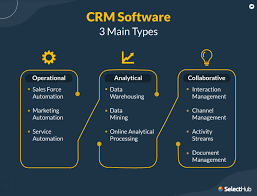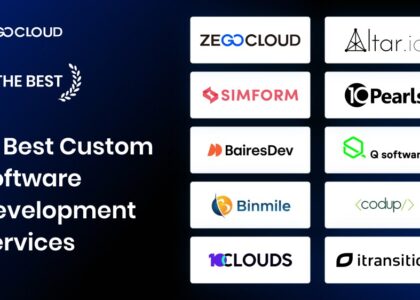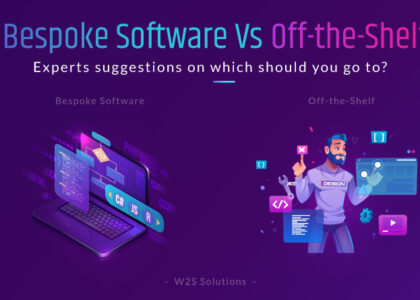The Best CRM Management Software for Your Business
Customer Relationship Management (CRM) software is essential for businesses looking to streamline their operations and improve customer interactions. With a wide range of options available in the market, choosing the best CRM management software can be a daunting task. To help you make an informed decision, we have compiled a list of some of the top CRM solutions that are highly recommended by businesses worldwide.
Salesforce
Salesforce is one of the most popular CRM platforms used by businesses of all sizes. It offers a comprehensive suite of tools for sales, marketing, and customer service teams to effectively manage customer relationships. With its cloud-based system and extensive customisation options, Salesforce is a versatile solution for businesses looking to scale their operations.
HubSpot CRM
HubSpot CRM is a user-friendly platform that provides powerful features for managing contacts, tracking deals, and analysing sales performance. It offers seamless integration with other HubSpot tools for marketing automation and customer support, making it an all-in-one solution for growing businesses.
Zoho CRM
Zoho CRM is known for its affordability and flexibility, making it a popular choice among small and medium-sized businesses. It offers modules for sales automation, marketing campaigns, and customer support to help businesses streamline their processes and improve efficiency.
Microsoft Dynamics 365
Microsoft Dynamics 365 is a comprehensive CRM solution that integrates seamlessly with other Microsoft products such as Office 365 and Power BI. It offers advanced analytics capabilities, AI-driven insights, and customisable dashboards to help businesses make data-driven decisions and drive growth.
Pipedrive
Pipedrive is a simple yet powerful CRM tool designed specifically for sales teams. Its visual pipeline management system allows users to track deals easily and prioritise tasks effectively. With features like email integration and sales forecasting, Pipedrive helps businesses focus on closing deals efficiently.
Choosing the right CRM management software can have a significant impact on your business’s success. Consider your specific requirements, budget constraints, and scalability needs when selecting a CRM solution that best fits your business goals.
Top 5 FAQs About the Best CRM Management Software
- What is the best software for CRM?
- What CRM do top agents use?
- What is the easiest CRM to use?
- Which is #1 CRM software?
- What is the CRM number 1 in the market?
What is the best software for CRM?
When it comes to selecting the best software for Customer Relationship Management (CRM), there is no one-size-fits-all answer. The choice of CRM software depends on various factors such as the size of the business, specific industry requirements, budget constraints, and desired features. Popular CRM software options like Salesforce, HubSpot CRM, Zoho CRM, Microsoft Dynamics 365, and Pipedrive are often recommended for their unique strengths in sales automation, marketing integration, customer support functionalities, and scalability. It is essential for businesses to assess their individual needs carefully and consider factors such as user-friendliness, customisation options, integration capabilities, and customer service support when deciding on the best CRM software solution for their organisation.
What CRM do top agents use?
Top agents in various industries often rely on robust and versatile CRM solutions to manage their client relationships effectively. While the choice of CRM software may vary depending on individual preferences and specific business needs, some popular options among top agents include Salesforce, HubSpot CRM, Zoho CRM, Microsoft Dynamics 365, and Pipedrive. These platforms offer a range of features such as contact management, sales automation, marketing integration, and analytics tools that help top agents streamline their workflows, track leads efficiently, and deliver exceptional customer service. By leveraging these advanced CRM systems, top agents can stay organised, nurture client relationships, and ultimately achieve greater success in their respective fields.
What is the easiest CRM to use?
When it comes to selecting the easiest CRM to use, many businesses look for a platform that offers intuitive navigation, user-friendly interfaces, and minimal training requirements. HubSpot CRM is often cited as one of the easiest CRMs to use due to its simple design, straightforward setup process, and seamless integration with other HubSpot tools. With features like drag-and-drop functionality, customisable dashboards, and automated data entry, HubSpot CRM provides an accessible solution for businesses seeking a user-friendly CRM system that can be quickly adopted by teams with varying levels of technical expertise.
Which is #1 CRM software?
When it comes to the question of which is the number one CRM software, Salesforce often emerges as a top contender. Widely regarded as a leader in the CRM industry, Salesforce offers a comprehensive suite of tools and features that cater to various business needs. Its cloud-based platform, extensive customisation options, and robust capabilities for sales, marketing, and customer service make it a popular choice for businesses looking to enhance their customer relationships and drive growth. While opinions may vary on what constitutes the absolute number one CRM software, Salesforce’s reputation for innovation and reliability positions it prominently in discussions about top CRM solutions.
What is the CRM number 1 in the market?
When it comes to the frequently asked question of which CRM software holds the number one position in the market, the answer can vary depending on specific business needs and preferences. However, some of the top contenders often cited as leading CRM solutions include Salesforce, HubSpot CRM, Zoho CRM, Microsoft Dynamics 365, and Pipedrive. Each of these platforms offers unique features and benefits that cater to different business sizes and industries. Ultimately, the best CRM software for one organisation may not be the same for another, as it is essential to consider factors such as scalability, customisation options, integration capabilities, and user-friendliness when determining the most suitable CRM solution for your business.






